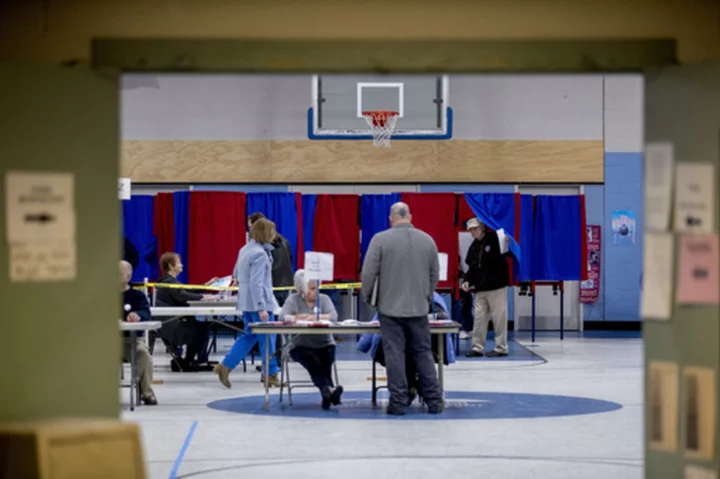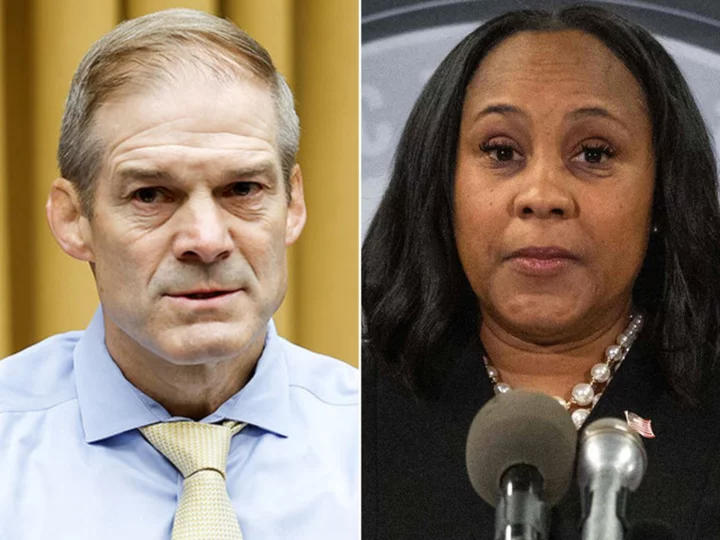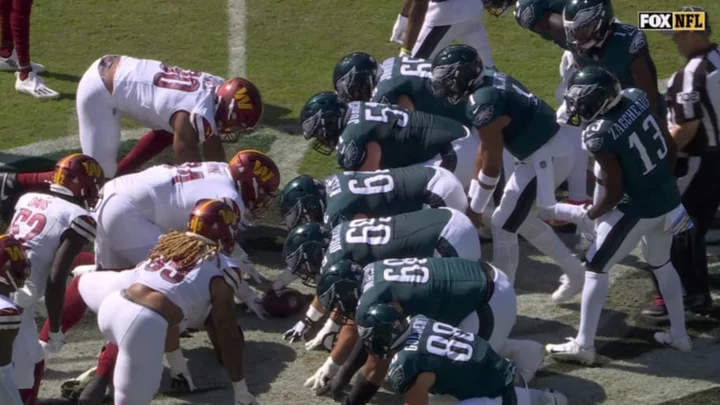WASHINGTON (AP) — President Joe Biden's plan to overhaul his party's 2024 presidential primary schedule remained unsettled Friday, after a Democratic rules committee gave New Hampshire more time to comply with new rules that leaders there fiercely oppose, but opted not to immediately offer such an extension to another battleground state, Georgia.
The Democratic National Committee rules panel voted to let New Hampshire have until Sept. 1 to continue working on its plans for the 2024 Democratic primary. But that is unlikely to quell an ongoing feud between the national party and the state's Democrats.
The same panel didn't extend more time to Georgia, which hasn't set its date for next year's primary either. Though the party could still offer Georgia an extension later this year, the state's place on Democrats' 2024 primary calendar is in limbo, at least for now.
At issue is Biden's plan to strip Iowa’s caucus of its traditional post leading off primary voting and replace it with South Carolina, which would vote on Feb. 3, 2024. New Hampshire has long held the nation’s first primary after Iowa’s caucus. But under the new calendar, it would vote next, together with Nevada, on Feb. 6 — a change New Hampshire officials have decried.
As he seeks reelection, Biden is facing two little-known primary challengers, self-help author Marianne Williamson and anti-vaccine activist Robert Kennedy Jr. Both have campaigned in New Hampshire and could win support from Democratic voters there who are angry at Biden for pushing the new calendar.
Rules committee co-chair Minyon Moore referred Friday to the friction over New Hampshire's place in the 2024 primary order, saying, “There's some space there between us and the folks in state on this.”
“But, as we’ve said all along, the president wanted New Hampshire in the early state lineup,” Moore added. “And this committee has long agreed that it is a critical state and should be a part of the mix.”
Under the new Democratic calendar, Georgia was set to vote fourth, with its primary coming on Feb. 13, followed by Michigan’s two weeks later. Much of the rest of the country would subsequently vote on Super Tuesday next March.
Georgia Republican Secretary of State Brad Raffensperger sets his state’s primary date and indicated that he’d be willing to move it to comply with the new Democratic order, but only if the Republican National Committee pushed to change its primary to the same time.
But that has not happened. Republicans instead plan to leadoff their 2024 primary with Iowa, followed by New Hampshire, Nevada and South Carolina.
Moore said Friday that, even if Georgia can't secure its place in the Top 5 for 2024, it could be in a stronger position to move up when Democrats revisit their primary lineup ahead of the 2028 presidential election.
“Republicans wouldn't budge. It does not seem to make sense to extend the waiver at this point,” Moore said of giving Georgia more time. But she added that “a foundation has been laid” for 2028.
The Democrats’ primary shakeup comes after the party's 2020 Iowa caucus was marred by technical problems. Biden says the new proposed calendar better reflects his party’s deeply diverse electoral base, which relies heavily on African American voters. The president also sought to reward South Carolina, after a decisive win there revived his 2020 presidential campaign following early primary losses in Iowa, New Hampshire and Nevada.
Though New Hampshire officially now has more time, its primary date could still prove a headache for national Democrats.
New Hampshire state law mandates that it hold the nation’s first primary — a rule Iowa was able to circumvent only because it held a caucus. Now, top New Hampshire Democrats are threatening to simply jump the other states and hold the nation's first primary again in 2024, regardless of the DNC’s new calendar.









